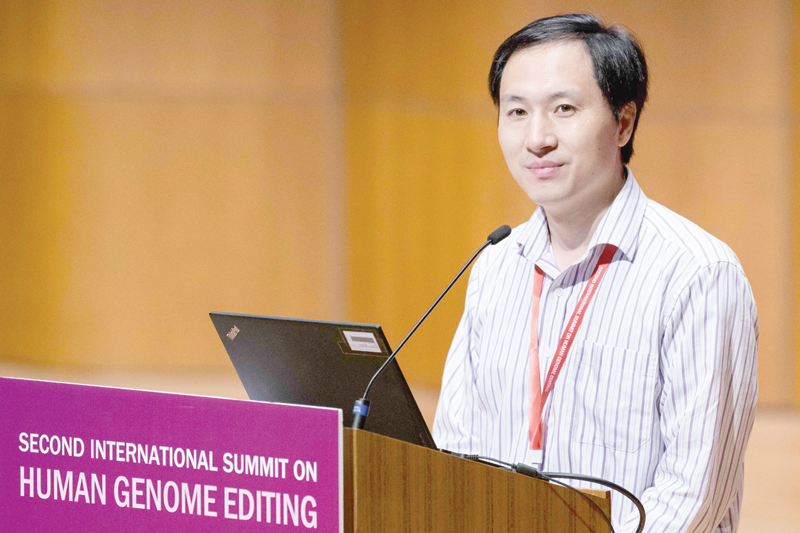

HONG KONG: A Chinese scientist at the centre of an ethical storm over what he claims are the world’s first genetically edited babies said on Wednesday he is proud of his work and revealed there was a second “potential” pregnancy as part of the research.
He Jiankui, an associate professor at Southern University of Science and Technology in Shenzhen, China, addressed a packed hall of around 700 people attending the Human Genome Editing Summit at the University of Hong Kong.
“For this case, I feel proud. I feel proudest,” He said, when challenged by several peers at the conference.
Asked whether there were any other edited gene pregnancies as part of his trials, He said there was another “potential” pregnancy and replied “yes” to a follow-up question as to whether it was a “chemical pregnancy”, which refers to an early-stage miscarriage.
It was unclear whether the pregnancy had ended or not.
He, who said his work was self-funded, shrugged off concerns that the research was conducted in secrecy, explaining that he had engaged the scientific community over the past three years.
“This study has been submitted to a scientific journal for review,” He said. He did not name the journal and said his university was unaware of his study.
In videos posted online this week, He said he used a gene-editing technology known as CRISPR-Cas9 to alter the embryonic genes of twin girls born this month.
He said gene editing would help protect the girls from infection with HIV, the virus that causes Aids.
But scientists and the Chinese government have denounced the work that He said he carried out, and a hospital linked to his research suggested its ethical approval had been forged.
The conference moderator, Robin Lovell-Badge, said the summit organisers were unaware of the story until it broke this week.
CRISPR-Cas9 is a technology that allows scientists to essentially cut and paste DNA, raising hope of genetic fixes for disease. However, there are concerns about safety and ethics.
The Chinese Society for Cell Biology in a statement on Tuesday strongly condemned any application of gene editing on human embryos for reproductive purposes and said that it was against the law and medical ethics of China.
More than 100 scientists, most in China, said in an open letter on Tuesday the use of CRISPR-Cas9 technology to edit the genes of human embryos was dangerous and unjustified. “Pandora’s box has been opened,” they said.
— Reuters
Oman Observer is now on the WhatsApp channel. Click here



